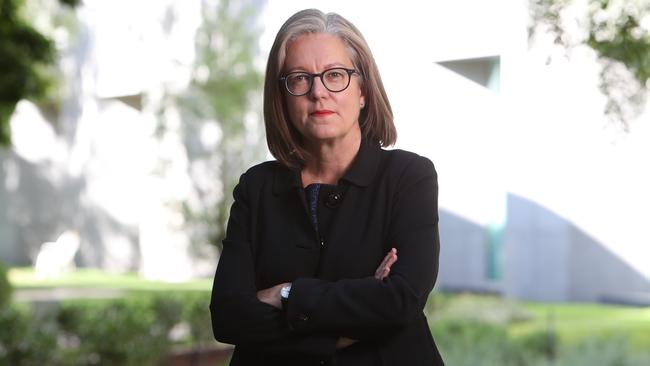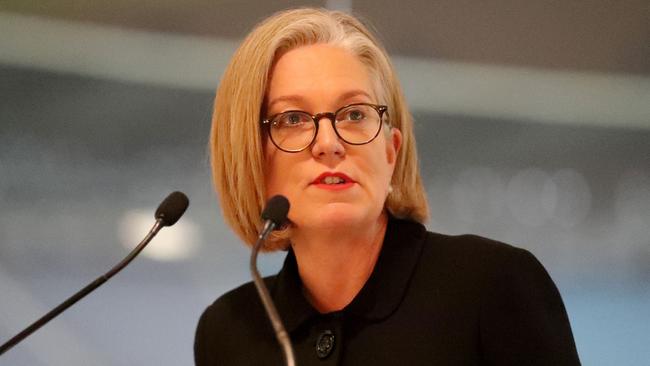ASIC’s Karen Chester outlines new obligations for BNPL industry
ASIC deputy Karen Chester says its new “frontier” rules will target the Buy Now Pay Later industry first to address “harms” in a precise and targeted way.

Afterpay and other players in the $8 billion Buy Now Pay Later (BNPL) sector will be the first target of ASIC’s new design and distribution regulations due to start in October.
The new rules put the onus on suppliers to design and distribute products to the right audience so consumers know what risks they are taking on.
In a speech on Wednesday ASIC deputy Karen Chester said the Design and Distribution Obligations (DDO) “represent a true step-change in financial services regulation – the frontier of outcomes-based regulation.”
“The first near-term cab off the rank will be Buy Now Pay Later firms,” she said.
“As flagged in our BNPL report late last year, we see DDO as our regulatory lever to address the harms of BNPL in a precise and targeted way.”
Chester also underlined ASIC’s crackdown against superannuation funds including those against industry funds REST and Statewide.
The REST case, alleging misleading information and blocks making it harder for people to move accounts, came in a reference from APRA.
“Our superannuation pipeline today comprises eight matters in litigation, two briefs of evidence in support of criminal charges with the Director of Public Prosecutions, more than 20 enforcement investigations; and multiple surveillance reports about potential super trustee misconduct,” Chester said.
Chester said ASIC’s regulatory aim was “to leave a lighter but more impactful
regulatory footprint.
“Our aim – less regulatory weight on business and markets and more regulatory impact on our targets,” she said.
She noted the regulator was focused on the impact of low interest rates and the hunt for yield which may leave consumers worse off.
“While the risk in Australia of a ‘GameStop moment’ is remote, it is symptomatic of
a shift in risk mindset that is happening globally among consumers becoming investors.
And this we are not immune to,” she said
Frenzies trading in GameStop in the US sent its stock up 2,463 per cent.

In a broad-ranging speech Chester also showcased her credentials for the role at ASIC noting she was formerly the chief executive of Deloitte Access Economics in the early 2000s when it had a cyber risk issue.
She noted cyber risk threats in today’s world of ubiquitous software usage, are “now a vulnerability and an exposure that has exponentially escalated. And it’s arguably the new frontier of both national defence and market integrity.”
Chester also outlined ASIC’s new express investigation model.
“Last year we reviewed, refined and re-engaged with five of our largest financial
institutions. We’ve since met with their chairs, CEOs and general counsel,” she said.
“At the earliest possible time, ASIC sets out our concerns to the entity.
“We then seek co-operation in the investigation through regular and consistent engagement.
“By co-operating, we reduce the time and expense of the investigation.
“We improve compliance rates on notices to produce documents and information and on the voluntary provision of information to assist our understanding of the conduct at issue.”
Chester noted the policy works on a ‘one strike and you’re out’ policy.
But, she said, it also saved money noting an express investigation into one bank came at a cost of $1.9m and was resolved in six months.
“A comparable matter involving the same entity (a year earlier) cost $7.2m and
took 16 months to finalise,” she said.






